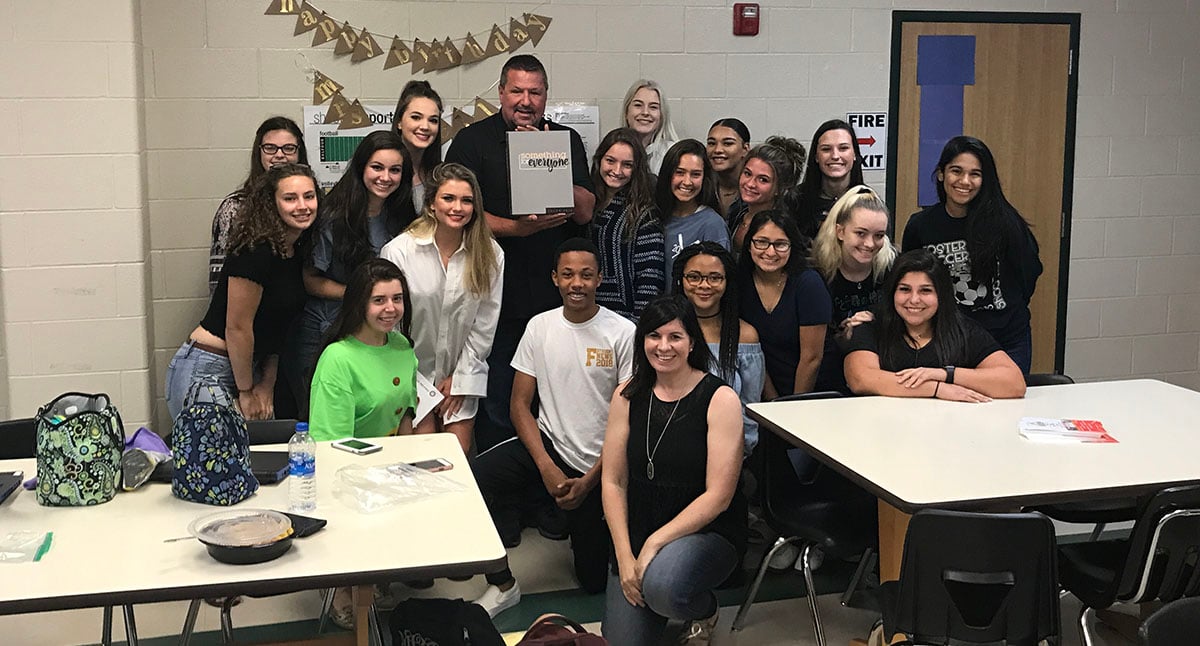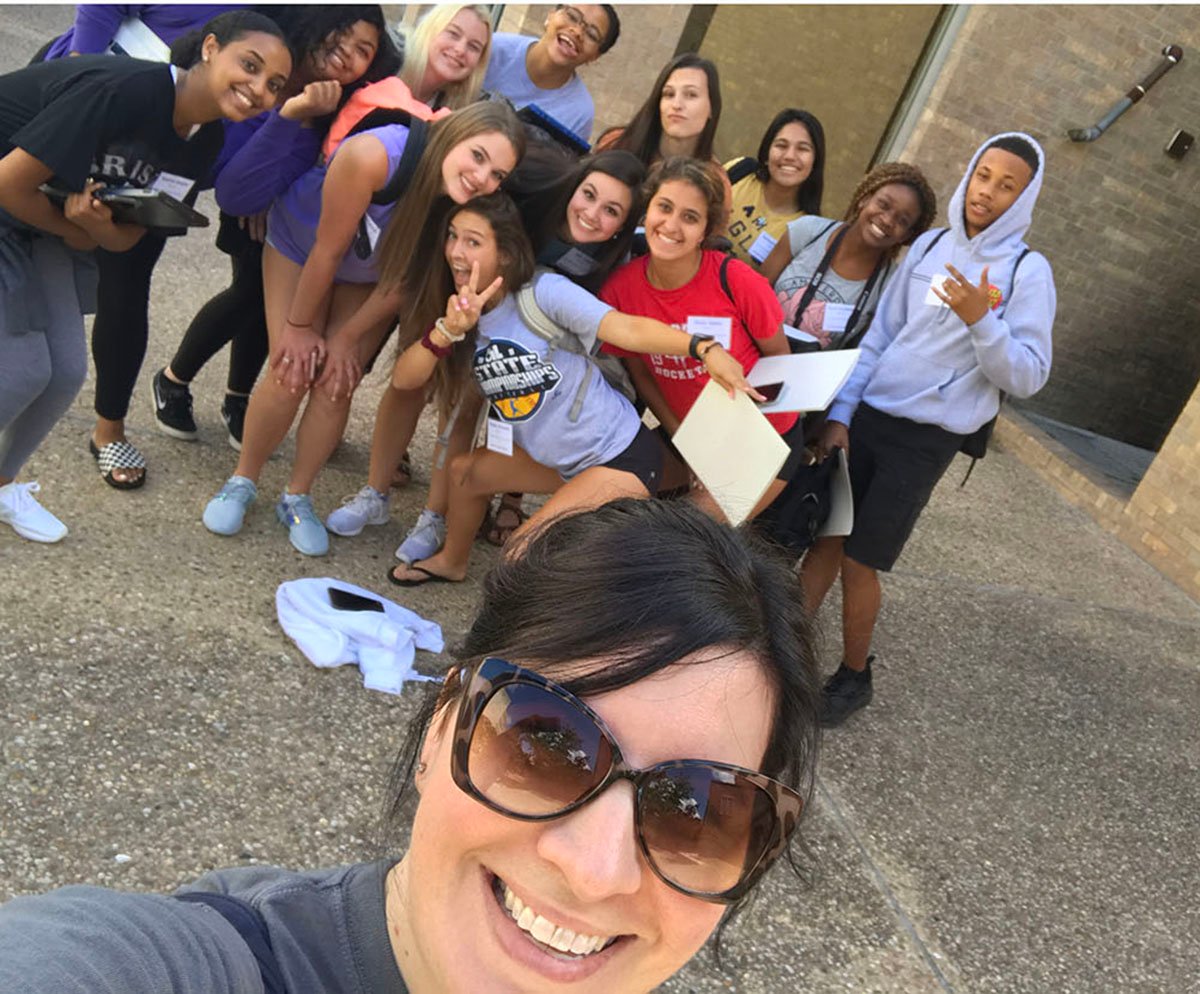
From time to time we will feature guest columns from Balfour advisers. Here's our first guest post of 2018 from Foster High School adviser Danielle Bell. Danielle shares advice for new and seasoned yearbook advisers on everything from admin support to who to avoid at lunch. This is her seventh year advising and 17th year teaching.
When you’re a first-year teacher, everyone has advice. They’ll forward you TED Talks and inspirational quotes and coupons for Teacher Heaven. You’ll get all of your keys and curricula and maybe even a district-logo tote bag and a copy of the book trending in the education world. (In 2002, my first year, that was Harry Wong’s “The First Days of School”). But no one really tells you what’s about to happen, or how to navigate the next year, or several years, of your professional life.
I learned most of what I am about to share “the hard way.” But finally, after 16 years as a high school teacher, in four states, in 11 schools, I think I have a few things figured out.
Note: There are whole books written on this topic—I am no expert, and many teachers know all of this long before Year 17 is upon them, but I thought I’d share a little bit of my own advice for anyone about to stand in front of a group of children and teach.
1. Make friends with the principal’s secretary and the receptionist. Find out what snacks they like and their favorite beverage. Surprise them one day by leaving something on their desk with a simple “Thank you!” sticky note. These people will save your life more often than you thought possible.
2. If a parent sends you a multi-paragraph email, nothing you say will be the right thing. Reply with two sentences: “I’ve received your email, and I’d be happy to discuss via phone. Please give me a number I can call so we can discuss your concern.” Let them speak, without interruption, before you answer their concerns. A lot of times, they just want to be heard.
3. On a similar note, if you feel an in-person meeting may be uncomfortable, involve an administrator. Fill the AP in on the situation and have the admin sit in on the meeting.
4. Make friends with at least one person in your department. Establish a relationship that allows you to send an eye-roll emoji to avoid actually rolling your eyes when frustrated. This is usually the person who will cover your class when you need to run to the restroom, grab stuff from your box, and help you navigate submitting grades. Once you get past your first year, you become this person for someone else. Pay it forward.
5. Don’t get a Master’s degree if you think the “raise” will be enough to pay off the student loan debt incurred to earn that degree. Take this advice from a woman still paying for her MA in 2018, 10 years after earning it.
6. If the district offers to pay for something (training, travel, supplies), take advantage of it. Same thing applies to applying for grants for classroom needs and materials. Don’t forget to send a thank you note after receiving funds or help.
7. Go to as many school events as your schedule allows. Kids want to know teachers care about them outside of the classroom. Some don’t have family to show up at games or events. Wear the spirit shirt. Go see the musical. Watch JV football. Let them know you were there. It’s worth it.

ABOVE: Foster High School adviser Danielle Bell (third from left) regularly attends varsity football games with her photographers. Photo courtesy of Danielle Bell
8. Participate in spirit days and school traditions (as allowed by admin). Know and sing the words to the alma mater. Wear your colors. During Spirit Week, if you act like “Throwback Thursday” is the coolest day ever, more kids will get involved in things at school. Bonus: You can wear your old letterman and kids will marvel at how you had those things “in the ’90s.”
9. Get to know the administrators. Talk with them. Foster a work relationship that’s not solely based on discipline issues or parent concerns. If the year gets rough, you’ll want an administrator who will back you up. If you don’t have that support, consider looking for a new job.

ABOVE: Establishing a strong relationship with administrators is essential to a successful school year. Foster’s principal Jerry Kipping brought the staff pizza in May to thank them for the 2018 yearbook. Photo courtesy of Danielle Bell
10. For your own sanity, figure out who the toxic attitude people are. Avoid sitting with them during staff meetings or lunch. Do not get sucked into the vortex of staff/department drama. These people will drag down morale and your own attitude will take a nosedive because of it.
11. Avoid discussing students with other teachers, especially ones you haven’t met yet. Inevitably, that person will tell you about his/her experience with that student or family, and your judgment will be clouded before the child has even walked into the room. It’s not fair to the kid to let that happen.
12. Take time to clean up your social media posts. This includes dumb tweets, inappropriate memes, links to controversial or questionable stories, and things other friends have posted on your page. Don’t provide fodder for someone who decides to investigate you.
13. Speaking of social media, don’t friend colleagues, students, or parents on any form of personal social media. Create a separate social media account just for professional interaction.
14. Leave as much of school AT SCHOOL as you possibly can. This is probably the hardest. But there is no award at the end of the year for the teacher who pulled all-nighters grading essays or stayed so late the custodians knew their life story. There’s also no money added to your paycheck for that stuff. Take care of YOURSELF so you can be a better teacher (and parent, spouse, friend, human).
15. Ask the kids who their favorite teacher on campus is—and then ask them why that person is one they value and trust. Kids will tell you exactly what they like and don’t like. Find inspiration and motivation from the excellent educators who are part of your school family.


